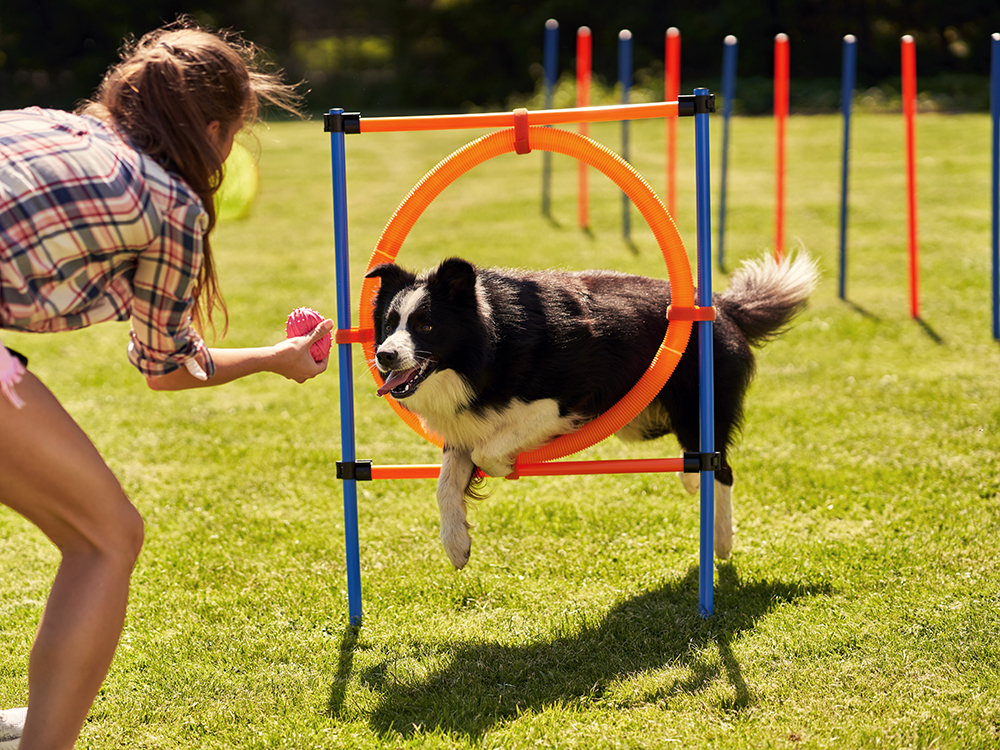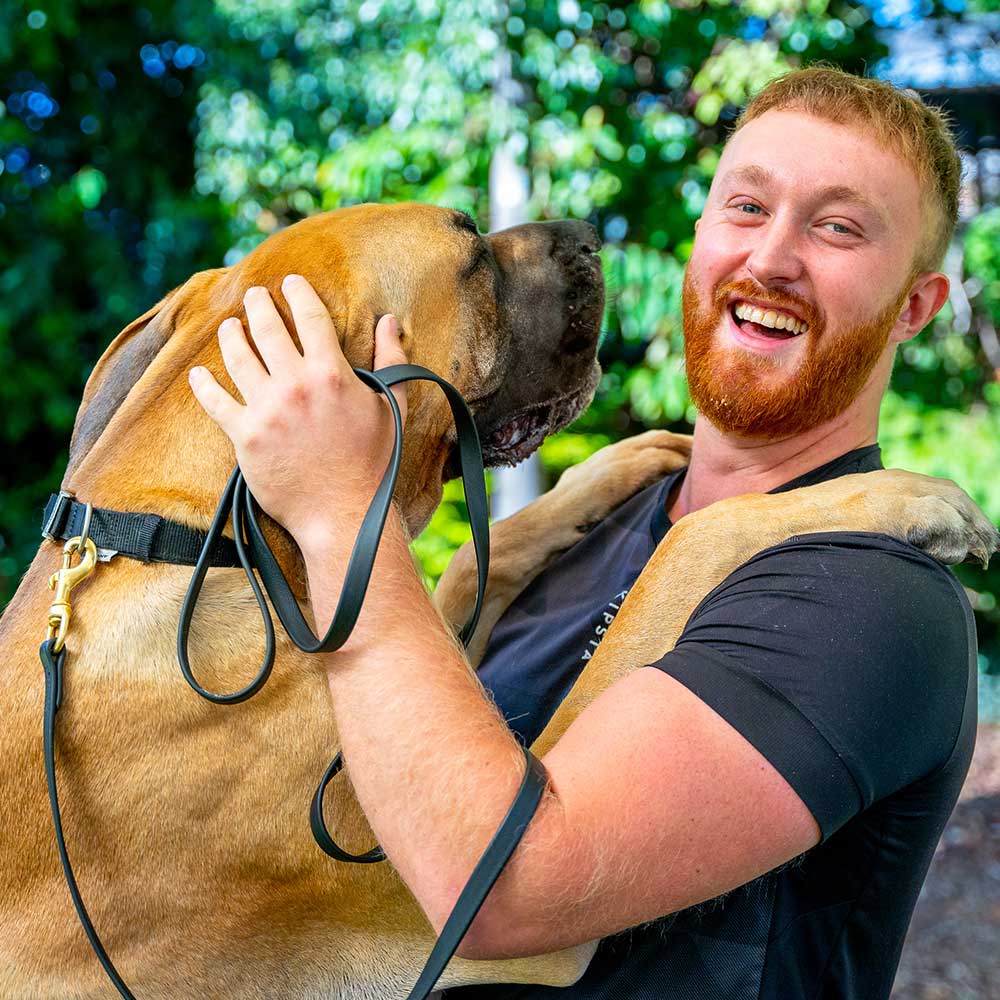The Ultimate Guide to Dog Training: Change Your Pet dog's Actions
Efficient canine training is essential for cultivating an unified connection between animals and their owners. The intricacies of canine actions and the application of structured training strategies play an important role in this procedure. By understanding the concepts of positive support, consistency, and socializing, family pet proprietors can browse typical challenges that arise throughout training. This guide not only aims to equip you with the required devices to transform your pet dog's behavior however likewise invites you to discover exactly how these foundational ideas can result in a deeper connection with your pet. What may be the primary step in this transformative journey?
Comprehending Pet Dog Behavior
Understanding canine actions is vital for efficient training and an unified connection in between canines and their owners. A pet's habits is affected by a mix of genes, atmosphere, and experiences. Dog training. Acknowledging these factors allows proprietors to tailor their training approaches to fulfill the specific demands of their animals
Dogs communicate mostly through body language, articulations, and faces. A wagging tail can indicate enjoyment or joy, while a tucked tail might indicate anxiety or submission. Observing these cues enables owners to react properly, enhancing positive behaviors and attending to negative ones properly.
Furthermore, recognizing the social structure of pet dogs can offer understandings right into their actions. Dogs are pack animals, and they thrive in an organized environment. Developing clear boundaries and consistent regulations can prevent complication and advertise a complacency.
Additionally, acknowledging the all-natural impulses of dogs, such as the desire to dig or chase, is important. These impulses can be redirected via appropriate outlets, such as play or workout. By thoroughly recognizing these behavioral aspects, proprietors can promote a favorable training experience, eventually resulting in a obedient and well-adjusted canine buddy.
Vital Educating Techniques
Efficient pet training counts on a range of important methods that can dramatically boost the learning procedure for both the dog and the owner. One essential method is positive reinforcement, which includes rewarding preferable behaviors with deals with, appreciation, or play. This approach motivates pet dogs to duplicate the behaviors that cause positive results, cultivating a relying on relationship in between the pet and proprietor.
An additional key strategy is uniformity in commands and assumptions. Utilizing the very same verbal hints and hand signals assists the pet dog recognize what is needed, reducing confusion and advertising quicker discovering. Furthermore, establishing clear borders and policies is essential for efficient interaction.
Socialization is also a necessary part of training. Revealing pet dogs to various settings, individuals, and other animals assists them establish appropriate social abilities and lowers anxiousness in unfamiliar situations.
Finally, patience and timing are crucial. Educating sessions must be quick but constant, guaranteeing that the canine remains engaged and responsive. By using these necessary strategies, owners can create a organized and positive training experience that advertises great actions and reinforces the bond with their canine companions.
Producing an Educating Schedule
Just how can a well-structured training timetable boost a dog's learning experience? A training timetable gives uniformity, making sure that pet dogs receive regular, concentrated guideline. This predictability helps pet dogs recognize what is anticipated of them, enhancing their discovering and permitting much better retention of habits and commands.
When creating a training schedule, it is vital to find out here now think about the pet dog's age, breed, and private temperament. Youthful pups might gain from much shorter, much more frequent sessions, while adult dogs may love longer, much less regular training periods. Including a variety of activities can additionally maintain the sessions engaging, avoiding dullness and advertising enthusiasm for discovering.
Additionally, organizing training sessions at certain times of the day can assist strengthen a routine. As an example, combining training with day-to-day walks or play can develop a positive organization with learning. It is also critical to include time for support, such as deals with or appreciation, to award desired habits without delay.
Finally, flexibility is crucial. While consistency is vital, being adaptable to the canine's state of mind or power level can improve their understanding experience. A well-crafted training timetable inevitably lays the foundation for effective communication and a stronger bond between the dog and proprietor.
Typical Educating Obstacles
Regardless of having a well-structured training timetable, dog owners usually run into various obstacles throughout the training procedure. One typical issue is incongruity in commands and hints. When several family participants make use of different terms or tones, a pet may end up being overwhelmed, preventing its capacity to find out properly.
Another constant difficulty is diversion. Dog training. Canines are naturally interested animals, and outside stimulations such as various other animals, noises, or people can divert their attention during training sessions. This requires proprietors to produce a regulated atmosphere or gradually introduce interruptions to strengthen focus
Furthermore, differing power degrees weblink can affect training outcomes. High-energy dogs might have a hard time to clear up down and focus, while a lot more laid-back types could require extra inspiration to involve. Tailoring the training approach to fit the individual canine's temperament is essential for success.

Structure a Solid Bond
A solid bond in between a dog and its owner is important for successful training and overall wellness. Dog training. This relationship fosters trust fund, which is vital for effective interaction throughout the training process. When a pet really feels safe and connected to its proprietor, it is more probable to respond positively to commands and signs
To construct this bond, consistency is crucial. Developing a routine that includes great site regular feeding, exercise, and training sessions aids create a feeling of stability. Furthermore, positive support techniques, such as treats, appreciation, and play, strengthen preferred habits while strengthening the emotional connection.
Socializing is one more essential facet of bond-building. Exposing your dog to various environments, people, and other pets helps them really feel much more comfortable and certain, boosting the bond with their proprietor. Taking part in tasks with each other, such as walking, playing bring, or taking part in obedience training, advertises teamwork and shared satisfaction.
Final Thought

Recognizing dog habits is vital for reliable training and an unified connection between canines and their proprietors.Effective dog training relies on a selection of vital techniques that can dramatically enhance the knowing procedure for both the canine and the proprietor.Despite having a well-structured training routine, dog proprietors often come across numerous challenges during the training process.In verdict, efficient pet training depends on a thorough understanding of canine habits, the application of important methods, and the facility of a structured training timetable. By highlighting favorable support and uniformity, canine proprietors can considerably boost their family pets' behavior, inevitably guaranteeing a harmonious connection and promoting the wellness of both the pet dog and its setting.